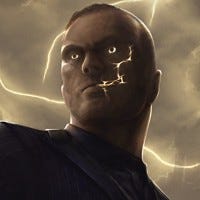What does it take to make a game alone.
Some tips on the matter from my personal experience.


Hi there! My name is Sergey Kalmanovich, and I create some indie stuff under Red Spot Sylphina pseudonym. Recently I finished development of my first solo indie game - Glasswinged Ascension. I must say it was really great experience, and the time has come to share my thoughts about this with anyone out there, who wishes to do the same, but doesn't know where to start. So, what does it take to make a game alone.
Skills you'll need for solo development.
It's well known fact that internet is full of all kinds of assets for sale. You can buy everything you'll need for a game - visual assets, animations, sounds, music, etc. But believe me, you don't want to base your game on someone else's work completely. This would be too expensive and not original enough, the final product in this case hardly could be called Your game eventually. You need to make most things for your game all by yourself, so be ready for learning... lots of learning, if you don't already have required skills.
First and foremost, you'll need to have at least some basic art skills - 2D, or 3D, or even both, depending on the game you want to create. Art assets are the most numerous assets you will require for your game, and also they are the primary things that make your game unique among so many others. If you decided to create a game and didn't spent at least half year for learning to draw (and/or modelling plus texturing), you better start learning before making any plans of final visual assets production. Keep this in mind, and also remember that no one stops you from starting development of a game with usage of placeholder assets while you are still learning to draw. Early implementation and testing of game mechanics doesn't require final art.
Secondly, programming. Without it your game will never work, no matter how good your art skill is. And even developing in Unreal Engine with its brilliant blueprint feature requires some basic programming skills as well as some time for learning. If you never coded before, be ready for lots of learning. Without corresponding experience even visual scripting may look really hard. Keep in mind, that it's up to you what engine to use. You can create your own, or just use an already developed one. Just remember, you'll spend much less time for creating your game in Unreal Engine than for creating your game from the void. The more user friendly the engine is, the more time it saves for you eventually.
Thirdly, design. You need game design skills to make a game. Without them you'll have no mechanics and balance to program. You may have tons of ideas, they may be interesting, but ideas are just a blurry vision of what you want to get as result. What is important is how exactly are you going to achieve this result. "Intense and dynamic combat" means nothing unless you just wanna make an article about a game instead of making actual game. How long an avarage combat in your game should last? Let's say 30 seconds, and your base damage will be 10 points per second, so enemy should have 300 HP... starting from such small things your game balance may become a huge table full of constants and calculations. This is what matters in game design - mathematics and logic. The more complicated your genius idea of combat will be, the more math and logic skills it will require to describe and balance.
Fourthly, writing. If your project is going to have some story, you'll need at least knowledge of good wrighting examples and an effort to learn from them. Games with deep and interesting stories will be perfect references for you, so just play them. The more - the better. It doesn't really matter if your game is going to be big or small. Play Mass Effect, Dragon Age, Metal Gear Solid, anything with lots of cutscenes and dialogues, and you will learn a lot to be able to create decent story yourself. Keep in mind, however, that voiceovers (if you plan any) are among assets that you better purchase, and this will not be cheap if your game will have a lot of them.
Finally, there are things which are actually logical to be purchased if you don't have any skills to create them - music, sound effects, and fonts. You'll not require too many of these for your game, while lots of licences for such asset usage are really cheap or even free. Ideally, you better make even these ones yourself of course, but believe me this is not really critical for your project. Be ready for some extra work even with purchased sound effects, however, as most of them will not fit your project perfectly and will require some editing anyway.
Software you will need for solo development.
Don't be afraid of this part, because top notch expensive software is not really required for game development. There are many free for commercial use high quality tools, and you just need knowledge of where to get them, and how to use them. Personally, I am very satisfied with GIMP and Inkscape for creating 2D assets, Blender as movie maker, and Audacity as sound assets editor. For documentation you can easily use Open Office. Unreal Engine, in my opinion, is the best engine out there, especially for the beginners, and it's also free (well, not completely, but the terms of use are very user friendly, acutally). If you wanna make a game without much investments into paid software, you better start learning to use free alternatives ASAP, you will not regret this, believe me.
As you can see, individual game development requires a lot of effort, so make sure you really ready for this before starting. Personally, I spent two years for learning before starting my first project, and 14 month long development process involved a lot of learning efforts itself.

Read more about:
BlogsAbout the Author(s)
You May Also Like













